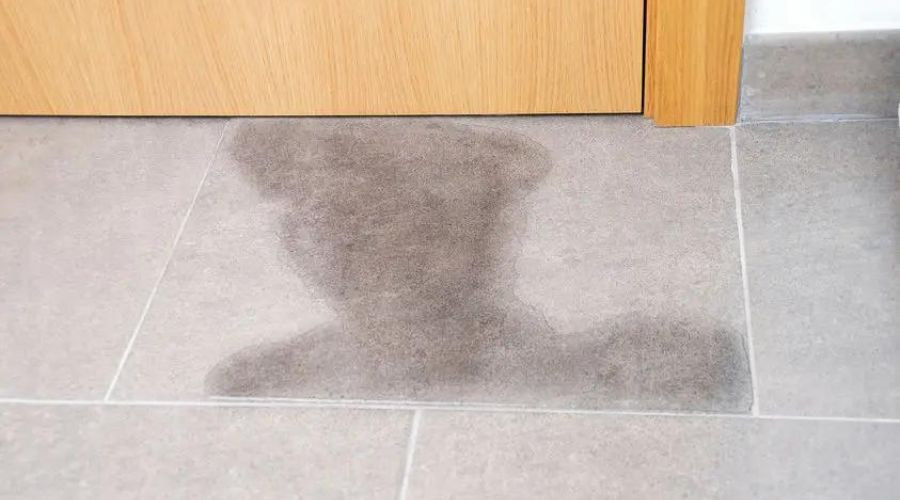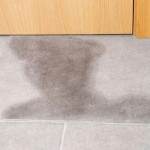Addressing Common Questions About Slab Leaks
Slab leaks can be a significant and complicated issue for homes, and yet many homeowners might not know how to spot them. All homeowners should be aware of their signs so that they can be addressed and repaired promptly by a plumber. If neglected, slab leaks can cause severe water damage to a house and its structure. This post will answer some common questions about slab leaks.
What’s a Slab Leak?
A slab leak is a leak that occurs in the water lines that run underneath the home’s slab foundation. These leaks can occur due to different reasons, including:
- Corrosion: Pipes can corrode over time, which can lead to holes and leaks.
- Abrasion: Water pipes may rub against things while they’re underground, including the foundation, gravel, or even other pipes, which can cause leaks.
- High Water Pressure: Water pressure that is too high can cause pipes to leak.
- Poor Installation: If the piping has been incorrectly installed, it can be more prone to leaks.
- Ground Shifts: Natural shifts in the ground from soil movement or earthquakes can cause pipes to crack or leak.
What Are the Warning Signs of a Slab Leak?
 Slab leaks can cause serious water damage, so it’s important that homeowners know how to identify them before they become larger problems that cause more extensive damage to the home. Some common signs to watch out for include:
Slab leaks can cause serious water damage, so it’s important that homeowners know how to identify them before they become larger problems that cause more extensive damage to the home. Some common signs to watch out for include:
- Unusually High Water Bills: Because a water leak wastes water, an unusually high water bill can signal a leak.
- Low Water Pressure: When there’s a leak in the water line, such as a slab leak, it can cause reduced water pressure from the fixtures, like faucets and showerheads.
- Water Puddles: If there is water pooling on the floor or outside, it can be a sign of a slab leak.
- Damp or Wet Spots: Unexplained damp spots on carpets or flooring can indicate a slab leak is causing water to seep up from underground.
- Mold Smell: Mold can grow as a result of moisture being trapped under the flooring due to a slab leak, so a musty smell can be a warning sign.
- Sound of Running Water: If people hear the sound of running water even though all the taps are turned off, it can be a sign that there is a slab leak.
- Foundation or Floor Damage: Continuous water leakage under the slab can damage and crack the home’s foundation and flooring.
How Do Plumbers Fix Slab Leaks?
 Fixing slab leaks may seem overwhelming, but the good news is that plumbers are prepared and equipped to handle them. The first step is for homeowners to call a professional as soon as a slab leak is suspected. Once a professional arrives, they can use advanced tools like leak detectors, thermal imaging cameras, and acoustic listening devices to find the location of the leak.
Fixing slab leaks may seem overwhelming, but the good news is that plumbers are prepared and equipped to handle them. The first step is for homeowners to call a professional as soon as a slab leak is suspected. Once a professional arrives, they can use advanced tools like leak detectors, thermal imaging cameras, and acoustic listening devices to find the location of the leak.
The advantage of knowing where the leak is located before starting repairs is that it prevents unnecessary damage to the home. Plumbers will then determine the best repair method to fix the leak. Different repair methods can include:
- Pipe Rerouting: Plumbers may reroute the affected line if the damaged pipe is hard to get to or heavily damaged.
- Pipe Relining: Plumbers may insert a new lining into the existing pipe, creating a new, durable pipe within the pipe.
- Direct Access Repair: This is the most traditional method. It involves getting through the concrete slab to reach the damaged pipe to repair or replace it.
After plumbing professionals have repaired the leak, they will test the line to ensure that it is working correctly and that no other leaks are present.
About Ira Hansen and Sons Plumbing
Ira Hansen and Sons Plumbing is a family-owned and operated company serving the Reno area since 1986. They offer personalized solutions, upfront service, and a beneficial preferred customer program. Call them for water leak detection and repair services in Reno, NV.












